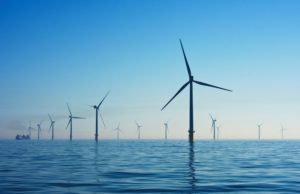Vanessa Igoe
On Wednesday, the UK government approved a new gas field in Jackdaw, east of Aberdeen. Development of the major North Sea gas field could cut Shell’s tax bill by £200m according to Rystad Energy data shared by the campaign group Uplift.
The Jackdaw gas field is expected to deliver 6.5% of the UK’s gas production, the equivalent of heating over 1.4 million homes, and aims to start production in 2025. This is part of wider efforts across the fossil fuel industry to lobby the government to approve up to 18 additional projects.
The decision is highly contested among climate campaigners. Greenpeace has since launched a legal challenge with the UK Supreme Court and awaits a procedural hearing. Last year, shortly before the COP26 UN Climate Summit, the Offshore Petroleum Regulator for Environment and Decommissioning (OPRED) rejected the Jackdaw gas field plan on environmental grounds.
Windfall Tax
Chancellor Rishi Sunak announced a £5bn temporary windfall tax on energy companies as part of the £15bn package allocated to mitigating the cost of living crisis. This will see energy companies pay an extra 25% tax on their profits, in addition to the 40% they currently pay.
Under the current UK tax regime, oil and gas companies are taxed 40% of their total profits, the lowest tax burden in the world. With Russia’s war on Ukraine exacerbating already rising oil and gas prices such companies are set to make an estimated £11.6billion windfall in 2022.
“80% investment allowance offered for new fossil fuel investments.”
An important factor in this announcement is the 80% investment allowance offered for new fossil fuel investments. Ministers have included the tax break to encourage firms to invest in oil and gas extraction in the UK. Oil and gas companies will overall receive a 91p tax saving for every £1 invested.
The decision goes against warnings by the International Energy Agency and the United Nations that to limit global heating to 1.5C and maintain a liveable climate there can be no new fossil fuel projects. The final instalment of the IPCC report explicitly recommends the need to phase out the reliance on fossil fuels in favour of renewable technologies.
“This is bad for future energy bills, our energy security, and our environment.”- Luke Murphy
“This government’s decision to levy a windfall tax on oil and gas firms is a welcome U-turn in the direction of common sense,” said Luke Murphy, Associate Director for Energy and Climate at IPPR. “However, giving these firms even bigger tax breaks to extract more oil and gas will lock in greater dependence on fossil fuels – this is bad for future energy bills, our energy security, and our environment.”
Fuel Poverty
The UK has the highest inflation among G7 nations combined with rising international gas prices, estimated to more than double UK energy bills in a year by October. A total of 6.32 million households are now predicted to be in fuel poverty and could rise to 8.5 million by the end of 2022.
As part of the £15bn allocated to help households with the cost of living crisis, £650 will be paid to the 8 million low-income families. Experts have noted this package of measures is insufficient to account for further increases in food and energy prices this year.

The E3G thinktank suggests the tax break would afford oil companies between £2.5bn and £5.7bn over three years. Meanwhile, an energy efficiency programme of £3bn would upgrade 2.1m homes, ultimately making them less reliant on gas.
The Tony Blair Institute report suggests the installation of an independent “domestic energy service”. This would transition homes to carbon net-zero and stabilise energy bills as they are no longer susceptible to the volatility of international markets. The 10-year plan aims to save consumers a total of £100 billion compared to current prices.
Renewable energy
Rishi Sunak’s temporary levy does not apply to the electricity generation sector and companies will receive no tax relief for investment in renewable energy. The UK Green party have openly condemned the tax break. Scottish Greens North East Scotland MSP Maggie Chapman states the scheme “penalises” companies for investing in renewable energy and incentivises companies to extract more fossil fuels.
Renewable energy is now cheaper than fossil fuels which spiked in price following Russia’s invasion of Ukraine. In the UK annual auction round, the government announced it would permit 12GW of new renewable energy capacity. Although, renewable energy experts estimate that about 18GW of new offshore and onshore wind and solar projects are “shovel-ready”.

This means many of the potential clean energy projects are likely not to go forward this year, ultimately depriving people of access to the energy savings on bills that come from renewable energy.
Energy experts have criticised the UK’s Energy Security Strategy for delaying the transition to renewable energy. “We welcome commitments on solar, hydrogen and offshore wind, but the Government’s plans will lock the UK into more expensive, longer to build non-renewable power sources.” said Nina Skorpuska, the chief executive of the Association for Renewable Energy & Clean Technology’s (REA). “It ignores a huge swathe of other renewable technologies and the approach to onshore wind”.
“Currently, there is three times more renewable power installed per person in the EU than the world average.”
In contrast, European countries are already attempting to make the shift to renewables and emphasising long-term projects as part of their economic recovery plans. Currently, there is three times more renewable power installed per person in the EU than the world average.
In Denmark, wind and solar power supply 50% of electricity and by 2050 the government expects to be completely independent of fossil fuels.
Featured image courtesy of Pavel Neznanov via Unsplash. Image license found here. No changes were made to this image.

